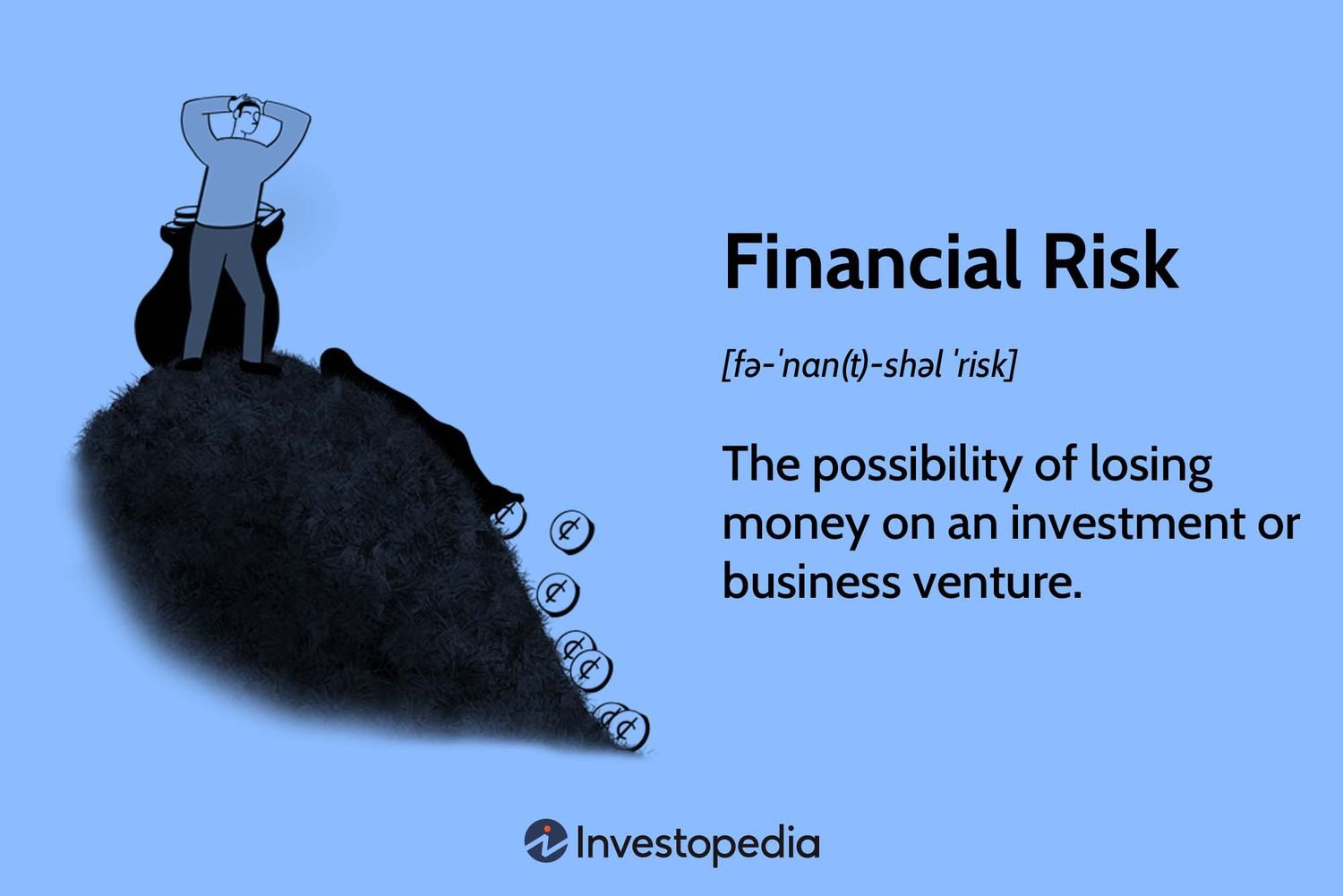Venture capital investing can be an exciting and lucrative endeavor, but it is not without its risks. Understanding the risks of venture capital investing is crucial for any investor looking to navigate this complex world. In this article, we will dive deep into the various risks involved and provide you with valuable insights and strategies to minimize those risks. Whether you are a seasoned investor or just starting out, understanding the risks of venture capital investing is the key to making informed decisions and ultimately achieving success in this dynamic field. So, let’s explore the potential pitfalls and rewards of venture capital investing together.
Understanding the Risks of Venture Capital Investing
Investing in venture capital can be an exciting and potentially lucrative opportunity for investors looking to support innovative startups and earn substantial returns. However, it’s crucial to understand that venture capital investing comes with its fair share of risks. In this comprehensive guide, we will explore the various risks associated with venture capital investing and provide valuable insights to help you make informed investment decisions.
1. Market Risk
Market risk is a fundamental risk that affects all types of investments, including venture capital. It refers to the possibility of losing money due to market-wide economic conditions. In the context of venture capital, market risk manifests in several ways:
- Economic Downturn: During economic downturns, investors often become more cautious, leading to a decrease in funding availability for startups. This can make it challenging for venture capital firms to find exit opportunities and realize the expected returns.
- Market Saturation: In highly competitive markets, startups may struggle to gain significant market share, resulting in potential losses for venture capital investors.
- Technological Disruption: Rapid advancements in technology can render entire industries obsolete, causing investments in related startups to become worthless.
2. Management Risk
Management risk refers to the potential for poor decision-making or ineffective execution by the startup’s management team. Even the most brilliant ideas may fail if the management team lacks the experience, skills, or commitment required to navigate the challenges of building and scaling a business. Key management risks include:
- Founder Reliability: Startups heavily rely on their founders’ vision, drive, and ability to execute. If the founders are unable to deliver on their promises or face personal challenges, it can significantly impact the success of the venture.
- Team Composition: A venture’s success depends on the collective efforts of its management team. Weaknesses in key management positions or conflicts within the team can hinder the execution of the business plan.
- Lack of Industry Experience: Inexperienced management teams may struggle to navigate industry dynamics, leading to poor decision-making and ultimately, failure.
3. Financial Risk
Financial risk encompasses various factors related to a startup’s financial well-being and its ability to generate returns for venture capital investors. Some key financial risks include:
- Cash Burn: Startups often burn through cash at a rapid pace to fund their growth. If the company fails to generate sufficient revenue or secure additional funding, it may run out of cash, leading to financial distress or even bankruptcy.
- Valuation Risk: Venture capitalists invest in early-stage companies with the expectation of future growth. However, if the initial valuation is too high, it becomes challenging for the startup to meet or exceed those expectations, potentially resulting in losses for investors.
- Exit Strategy: Venture capital investments typically have a long investment horizon. The absence of a clear exit strategy, such as an initial public offering (IPO) or acquisition, can delay the realization of returns or limit the potential exit options.
4. Regulatory and Legal Risk
Regulatory and legal risks in venture capital investing relate to the potential impact of changing regulations or legal complications on the performance of investments. Some notable regulatory and legal risks include:
- Compliance Issues: Startups may face regulatory hurdles that could impact their ability to operate or result in fines and penalties. Investors must assess the startup’s compliance measures and the potential risks associated with regulatory changes.
- Intellectual Property (IP) Challenges: Intellectual property disputes and challenges can arise if a startup’s technology infringes on existing patents or if the startup fails to protect its own intellectual property adequately.
- Litigation: Lawsuits and legal disputes can be costly and time-consuming. If a startup becomes embroiled in litigation, it can drain valuable resources and redirect attention away from core business activities.
5. Dilution Risk
Dilution risk refers to the potential loss of ownership percentage in a startup due to subsequent funding rounds. As startups grow and secure additional funding, they issue new shares, diluting the ownership stake of existing shareholders, including venture capitalists. Dilution risk can impact the potential return on investment, as the ownership stake decreases, potentially reducing the percentage of any future exit proceeds.
6. Lack of Liquidity
One significant risk of venture capital investing is the lack of liquidity. Unlike publicly traded stocks, venture capital investments are typically illiquid and have lengthy investment horizons. Investors may need to wait several years before realizing any returns on their investments. This lack of liquidity makes it challenging to reallocate funds or react to changing market conditions promptly.
7. High Failure Rate
Startups have a high failure rate, and venture capital investments are no exception. The majority of startups may fail to achieve their full potential or may fail outright. As an investor, there is a risk of losing the entire investment if the startup fails to thrive or attract follow-on funding. It’s essential to diversify the venture capital portfolio to mitigate the potential impact of individual investment failures.
8. Lack of Information Transparency
Venture capital investments often involve investing in private companies where information transparency is limited compared to publicly traded companies. Investors may have limited access to financial statements, market data, and other key metrics. This lack of transparency makes it challenging to conduct thorough due diligence and accurately assess the risks associated with the investment.
In conclusion, venture capital investing offers the potential for significant returns, but it comes with inherent risks. Understanding and carefully evaluating these risks can help investors make informed decisions and minimize potential losses. By considering market risk, management risk, financial risk, regulatory and legal risk, dilution risk, lack of liquidity, high failure rate, and lack of information transparency, investors can navigate the venture capital landscape more effectively and increase their chances of success. Always consult with a financial advisor or professional before making any investment decisions to ensure they align with your specific financial goals and risk tolerance.
If You Know Nothing About Venture Capital, Watch This First | Forbes
Frequently Asked Questions
Understanding the Risks of Venture Capital Investing
Frequently Asked Questions (FAQs)
What is venture capital investing?
Venture capital investing refers to the practice of providing financial capital to early-stage, high-growth companies in exchange for an ownership stake. It involves taking calculated risks to support the growth and expansion of startups.
What are the main risks associated with venture capital investing?
The main risks of venture capital investing include the possibility of a complete loss of investment if the startup fails, illiquidity of investments, lack of control in decision-making, and the inherent uncertainty of the startup ecosystem.
How can I evaluate the risks associated with a venture capital investment?
To evaluate the risks of a venture capital investment, you should conduct thorough due diligence on the startup and its industry. This includes analyzing the market potential, assessing the management team’s capabilities, and understanding the competitive landscape.
What strategies can I employ to mitigate the risks of venture capital investing?
To mitigate the risks of venture capital investing, you can diversify your investment portfolio by investing in multiple startups across different industries. Additionally, staying informed about the market trends and closely monitoring the progress of your investments can help you make informed decisions.
What are the potential returns of venture capital investments?
Venture capital investments have the potential for high returns, but they also come with higher risks. Successful investments in startups can yield substantial profits, sometimes even surpassing returns from traditional investment vehicles. However, not all investments will be successful, and some may result in a partial or total loss of capital.
How long should I expect to hold a venture capital investment?
Venture capital investments usually have a longer investment horizon compared to traditional investments. They often require more time to reach maturity or a point of exit, which can range from several years to a decade or more. Patience and a long-term perspective are essential when investing in the VC asset class.
Are there any tax implications associated with venture capital investing?
Yes, there can be tax implications associated with venture capital investing. The tax treatment varies depending on the jurisdiction and the specific investment structure. It is advisable to consult with a tax professional or advisor to understand the tax implications associated with your venture capital investments.
What are some alternatives to venture capital investing?
Alternatives to venture capital investing include angel investing, crowdfunding, and traditional equity investments. Each option has its own advantages and disadvantages, so it’s important to assess your risk tolerance, investment goals, and investment horizon before choosing an alternative investment strategy.
Note: The above questions and answers provide general information on understanding the risks of venture capital investing. It is always recommended to seek professional advice or conduct thorough research before making any investment decisions.
Final Thoughts
Understanding the risks of venture capital investing is crucial for anyone considering this investment strategy. It is important to recognize that venture capital investments come with inherent uncertainties and the potential for high returns but also significant losses. Investors must be prepared for the possibility of their investments not yielding the expected results. Conducting thorough due diligence, diversifying the investment portfolio, and seeking professional advice can help mitigate some of these risks. It is important to approach venture capital investing with a realistic mindset and to carefully assess the potential risks involved. By doing so, investors can make informed decisions and maximize their chances of success.


